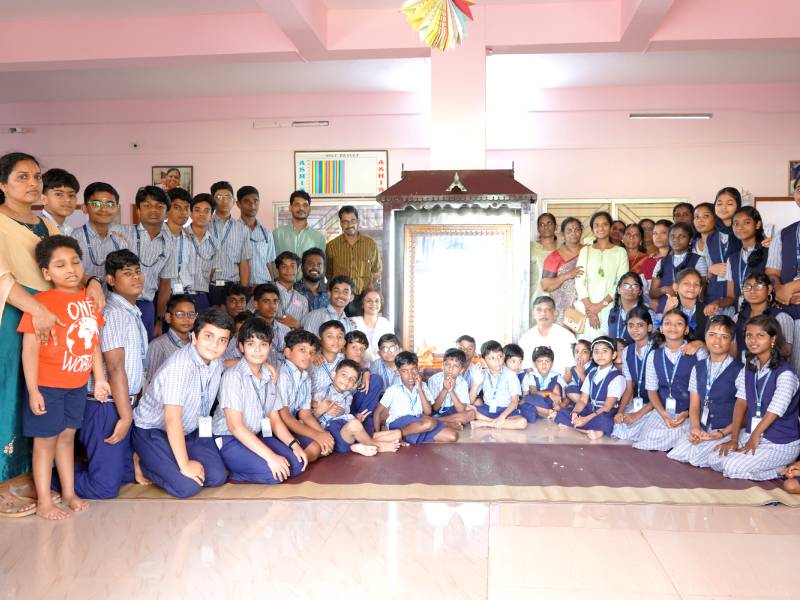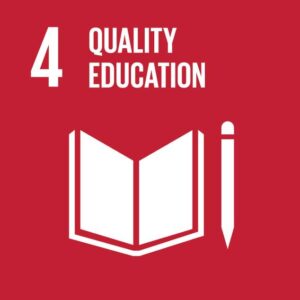Programs
- M. Tech. in Automotive Engineering -Postgraduate
- Master of Physician Associate (M.PA) – (Medicine, Surgery) 2 Year -Postgraduate


![]()
Communication is a cornerstone of human interaction and societal engagement. For persons with disabilities, persistent barriers to accessible and accepted communication methods function as significant obstacles, limiting their full participation in both their immediate environments and broader society.
This challenge is particularly evident for the Deaf and Hard-of-Hearing (DHH) community. While sign language is their native language, the educational system predominantly focuses on oralism, speech and hearing. This preference exists because verbal communication is prioritized. Due to the lack of widespread knowledge and use of sign language in mainstream society further reinforces the importance of verbal communication.
Recently, the Amrita CREATE and the UNESCO Chair on Assistive Technologies in Education team visited the Amrita Speech and Hearing Improvement School (ASHISH) in Thrissur, Kerala. The visit provided a two-way learning experience: our signers and interpreter introduced Indian Sign Language (ISL) to students, parents, and teachers, while our team was introduced to teaching methods and pedagogies related to speech improvement from the seasoned teachers at ASHISH.
The team received a warm welcome from Principal Mrs. Jancy Chandran, teachers, parents, and students. As part of their visit, the team spent the entire day engaging with students both inside and outside the classroom. The visit commenced with a formal lighting of the lamp ceremony, led by Dr. Prema Nedungadi, Associate Dean, School of Computing; Director, Amrita CREATE; and UNESCO Chairholder on Assistive Technologies in Education, Ms. Katheryn Davenport, Amrita CREATE, and Mrs. Jancy Chandran.
Addressing the gathering, Dr. Nedungadi said that the reason behind the team’s visit was to learn from the experience of teachers at the school and understand the needs and aspirations of the parents and students as well as explore pathways to support teachers in the classroom. She also stressed the importance of adopting a human-centered approach while designing educational technologies as it is at the heart of developing intuitive, low-cost, sustainable, and scalable solutions.
Ms. Anu Menon, our signer, shared her experience working on our Indian Sign Language (ISL) projects. Ms. Menon learned ISL after joining the team, with support from our ISL expert and interpreter, Mr. Rajeevan Kolayite. The insights and feedback from our Deaf team members are central to the design and development process, which aligns with the motto, “Nothing about us, without us.” Our Deaf and hearing team members communicate using ISL, with others actively learning too, as we work toward building a truly inclusive team.
Ms. Menon encouraged parents, teachers, and students to learn ISL to communicate with dignity and confidence advocating bilingual deaf education. Furthermore, she highlighted that learning ISL has also opened up diverse job opportunities. Her powerful message immediately resonated, establishing her as a role model. The visible inspiration in the students’ focused attention and the spark in their eyes suggested a renewed sense of hope and purpose for their future success.
The students’ enthusiasm carried into the classroom later that day. When the teacher asked the Grade 10 students if they wanted to learn Indian Sign Language (ISL), the entire class broke into a flurry of signing, unanimously affirming their positive response.
Ms. Kathryn Davenport introduced ISL Labs—the latest addition to OLabs. The project is supported by the Ministry of Education, the Ministry of Electronics and IT, and NCERT. This innovative platform addresses the significant gap in mainstreaming ISL by offering a free, gamified tool that makes learning Indian Sign Language engaging and accessible to anyone, free of cost, right from their homes, which was well received.
The NEP 2020 focuses on overall child development through quality education (SDG 4). For Children with Disabilities (CwDs), individualized care at a special school like ASISH is integral to fostering holistic development. The school’s environment is remarkably warm and supportive, establishing a truly conducive and safe space where both students and teachers can thrive and express themselves. Our team is profoundly grateful for the opportunity to have participated in the daily activities, an experience that offered us far more valuable learning than teaching.
The team that visited the school consisted of Dr. Prema Nedungadi, Prof. Raghu Raman, Ms. Kathryn Davenport, Ms. Anu Menon, Mr. Rajeevan Koliyote, Dr. Rajlakshmi Kanjilal, Mr. Gautham K Dileep, Ms. Sreelekshmi AS, Mr. Amal Krishnan UC, Mr. Hisham CP, and Mr. Kunjumom.